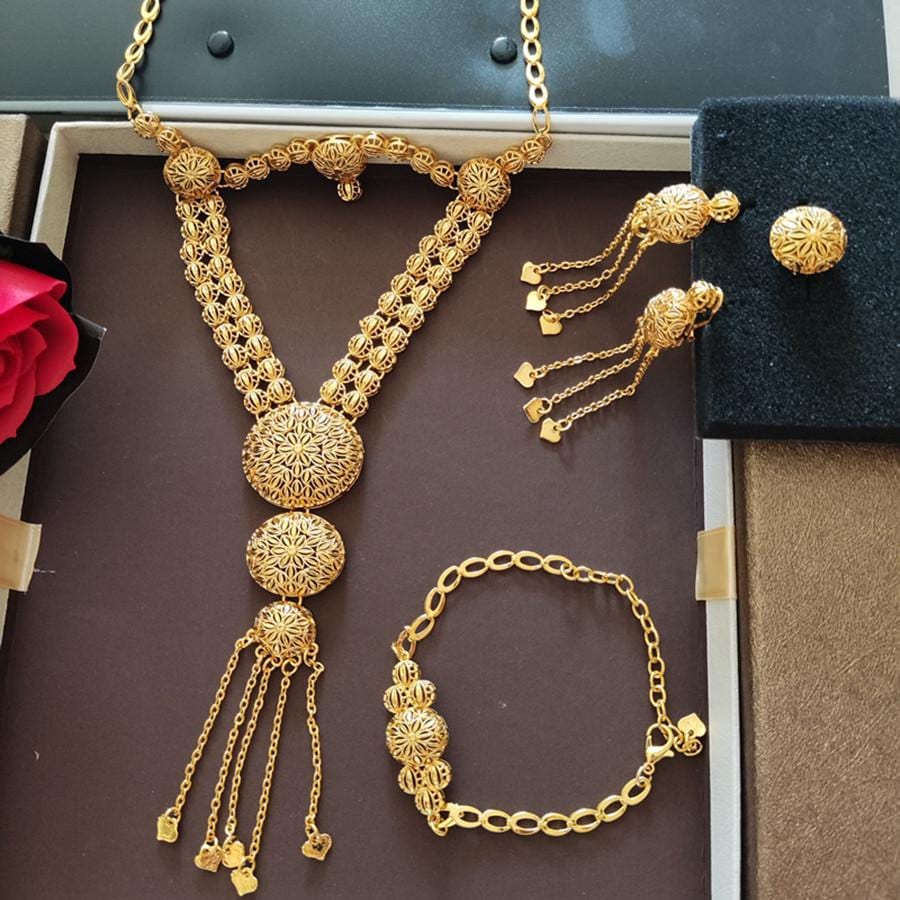
Jewelery companies in Sudan
Sudan has a long history of jewelry craftsmanship that reflects the country’s cultural heritage, combining traditional techniques with modern influences. Jewelry in Sudan often incorporates gold, silver, and locally sourced gemstones, showcasing intricate designs influenced by Arabic, African, and Nubian traditions. The jewelry industry in Sudan is concentrated in cities like Khartoum and Omdurman, where skilled artisans and jewelers operate in markets and workshops.
Key Features of Sudanese Jewelry
1. Cultural Influence: Jewelry in Sudan is deeply rooted in cultural and social significance. Traditional pieces like necklaces, bracelets, and anklets often feature symbolic designs and are worn during weddings, festivals, and other important occasions. Nubian jewelry, in particular, is renowned for its bold designs and use of gold.
2. Materials Used: Gold is the most popular material in Sudanese jewelry, often crafted into intricate designs. Other materials include silver, copper, and beads, with some pieces incorporating semi-precious stones like agate and amber.
3. Craftsmanship: Artisans in Sudan employ traditional techniques such as hand-engraving and filigree work. These methods have been passed down through generations, making the jewelry both a craft and a cultural legacy.
4. Modern Trends: While traditional jewelry remains popular, modern designs are also gaining traction. Contemporary jewelers in Sudan are blending traditional motifs with modern aesthetics to cater to younger customers and international markets.
Notable Jewelry Companies and Workshops
1. Al-Bashir Jewelry: Located in Khartoum, Al-Bashir Jewelry is known for its elegant gold and silver designs. The company specializes in creating custom-made pieces for special occasions like weddings.
2. Golden Dinar Jewelry: A prominent name in Sudan’s jewelry market, Golden Dinar Jewelry combines traditional styles with contemporary trends. The company often features Nubian-inspired designs and high-quality craftsmanship.
3. Omdurman Gold Market: While not a single company, the Omdurman Gold Market is a hub for jewelry trading in Sudan. Numerous workshops and vendors operate within the market, offering a wide range of traditional and modern jewelry.
4. Nubian Treasure Creations: This boutique brand focuses on promoting Nubian cultural heritage through its jewelry. They create unique pieces inspired by ancient Nubian motifs, catering to both local and international clients.
Challenges in the Industry
1. Economic Instability: Sudan’s jewelry industry has faced challenges due to economic instability and fluctuating gold prices, which can affect production costs and demand.
2. Limited Technology: Many jewelers rely on traditional methods and lack access to advanced tools and machinery, limiting their ability to produce large quantities or compete in global markets.
3. Export Barriers: Although Sudan has an abundance of raw materials, exporting finished jewelry is hindered by logistical challenges and trade restrictions.
Opportunities for Growth
1. Tourism: Promoting Sudanese jewelry as part of cultural tourism could attract international buyers and boost the industry.
2. Online Platforms: Expanding to e-commerce could help jewelers reach a broader audience, particularly in the global market.
3. Collaborations: Partnerships with international designers and brands could introduce new techniques and materials while promoting Sudanese craftsmanship.
In summary, the jewelry industry in Sudan is a vibrant sector with deep cultural roots. While challenges like economic instability and limited technology exist, opportunities for growth through innovation, e-commerce, and international collaboration hold promise for the future of Sudanese jewelry.



Leave a Reply